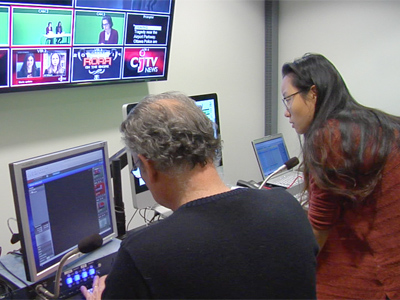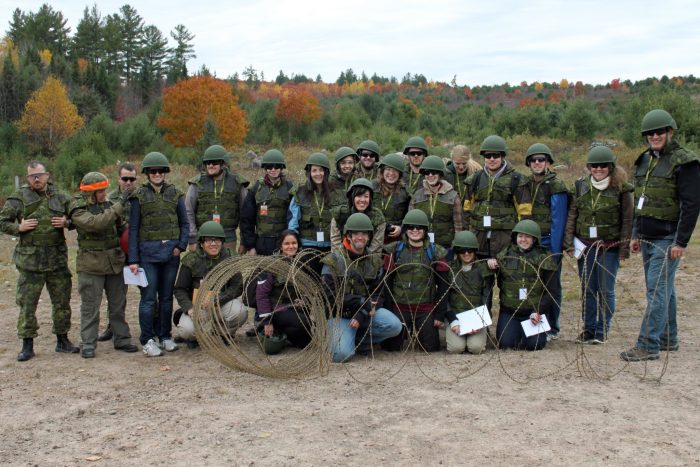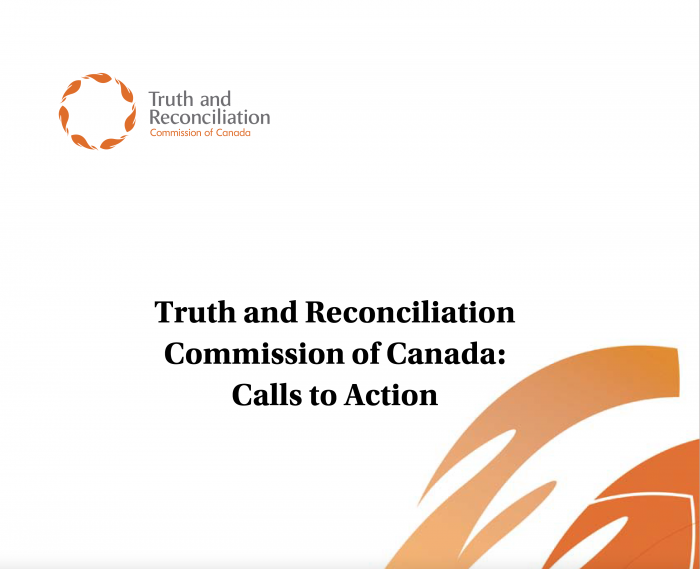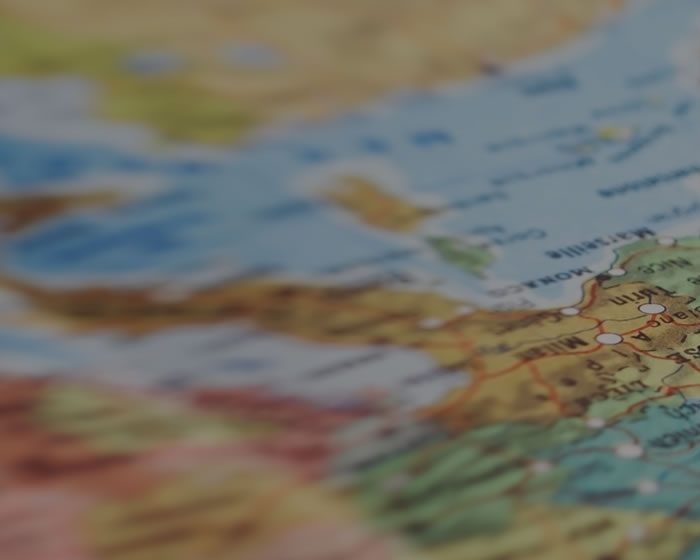Featured Courses
A rich menu of mandatory and elective courses – both professional and academic – is available for you. Here are a few of the highlights. You can find a full listing in the graduate calendar.
*Not all listed courses are available to first-year MJs. Check with your Graduate Administrator.
MJ Special Topics
JOUR 5508A Investigative Journalism Project
Join the National Student Investigative Reporting Network in this special topics course. The network of journalism students in schools across the country launched the initiative with The Price of Oil. It was an award-winning collaborative project that was run by news organizations from the Toronto Star to Global News. Students then took on water issues. See the Carleton stories here:
https://www.nationalobserver.com/2019/04/08/features/how-safe-ottawa-river-nuclear-waste
https://www.nationalobserver.com/2019/04/09/features/big-rideau-lake-clock-ticks
https://www.nationalobserver.com/2019/04/08/features/how-safe-ottawa-river-nuclear-waste
This year you can take on a new issue as part of our investigative team within the larger network.
A sampling of first-year courses
JOUR 5002 Journalism, Race and Diversity
When it comes to issues of race and diversity, the news media have always had particular responsibilities. What should the range of responsibilities be in today’s society? How have expectations changed over the years? Where should we look for solutions that will enable journalism to better reflect the rich diversity of the communities it serves? This seminar will help you examine journalism’s role in race and diversity, and reflect on your own obligations and approaches as a journalist.
JOUR 5200 Introduction to Reporting
This is your deep plunge into covering the news. You’ll learn everything from how to find a news story, identify sources, and write a news story to how to use photography, graphics and social media to get the story out. Classes include lectures, field trips, guests from the working media and discussions of your work. And you’ll get plenty of chance to practice your new skills.
JOUR 5202 - Broadcast Journalism: Video
Journalism at its best can shake the foundations of attitudes and assumptions, policies and governments. Video journalism – the journalism of pictures and words – can do so in even more potent ways. Think of images from Ukraine or Syria. Or the forest fires in BC or the Amazon. The protestor and the tank in Tiananmen Square. Refugees desperately trying to reach friendly shores. This course teaches you visual literacy and the skills you need to work as a video journalist in a digital age.
JOUR 5202 Broadcast Journalism: Audio
Radio remains an important medium for breaking news and long-form documentaries and audio is becoming an increasingly popular format for creative and innovative storytellers. This intense six-week workshop offers solid training in the expertise you will need in order to produce outstanding audio journalism for a variety of media platforms.
JOUR 5206 Reporting Methods
Scripted events. Secret meetings. No-interview policies. In the so-called Information Age, figuring out what’s going on can be harder than ever. You’ll learn how to obtain useful information, make sense of it, and shape it into compelling stories. You’ll get a solid grounding in freedom-of-information laws, business records, data journalism and document hunting.
"The Beat" course options
Fall Term
JOUR 5300 The Beat Special Topic: The Power and Politics of Government
Accreditation to the Parliamentary Press Gallery is your passport to an in-depth exploration of Canada’s government, public policy and politics. Witness the cut and thrust of Parliamentary debate and committee hearings, reporting from the very centre of the action. Each week, there will be in-class discussion of the country’s major events, policy announcements and political developments.
JOUR 5303 The Beat: Advanced Science Journalism – Health
Strong journalism about health science is vital to an informed public. Misinformation spreads like a virus on social media and still finds a spot in legacy media: consider the harm caused by anti-vaccine advocacy, food faddism, disease mongering. This course will teach you how to report accurately on new studies and emerging treatments. You’ll learn to use sound research, credible sources, and compelling techniques in health and medical story telling while you meet and interview leading scientists and health journalists.
JOUR 5308 The Beat: Advanced Sports Journalism
More than play-by-play – you’ll cover live sporting events and learn to look beyond the field to find stories. You’ll read some of the greatest works of sports journalism and analyze some not-so-good sports writing in order to spot the difference. You’ll meet real athletes and sportswriters and dive into discussions about how best to master the craft.
JOUR 5309 The Beat: Advanced Arts Journalism
Arts and culture journalism remains the most satisfying of writing genres, with opportunities for analysis and storytelling, and an avid readership online. This course introduces key issues while teaching hands-on techniques for writing profiles, reviews, etc. Topics include our celebrity cult, the unholy power of publicists, how to recognize bias or manipulation from sources, the pitfall of “fan-ism,” and the indispensable uses of digital media for your reporting.
Winter Term
JOUR 5304 The Beat: Advanced Science Journalism – Environment
Climate change is reshaping the planet with far reaching consequences for people and places, plants and animals, air and water. What does the astute journalist need to know to cover climate and the other science disciplines that make up the latest research on the environment? You’ll learn about the Arctic’s melting permafrost, the rise in sea levels, extreme weather conditions and the resulting changes in agriculture and food security. You’ll meet the researchers who work on these challenging areas of science and the science journalists who now cover their stories.
JOUR 5311 The Beat: Advanced Legal Journalism – The Supreme Court
The Supreme Court of Canada has an enormous effect on our everyday lives. The highest court’s justices routinely make decisions on our rights, free speech, healthcare, criminal justice, religion, immigration and refugees and other pressing issues of our time. It is, therefore, unsurprising that the law intersects with almost every area of journalism at one time or another. In this workshop course, you will cover the Supreme Court of Canada as a beat. You will attend court proceedings as a class and there will be latitude for you to explore your particular interests by writing an enterprise piece for your final project.
JOUR 5315 The Beat: Advanced International Journalism – The U.S.
We look at how Canada and the United States have lived together peacefully for almost two centuries. We begin by examining the values of Donald Trump’s America and the values of Justin Trudeau’s Canada. Each week, we examine a different part of the relationship – diplomatic, cultural, financial, military. We look at the differences between Canadians and Americans, and ask if we are becoming more alike each other or moving farther apart. We visit the Embassy of the United States, and hear from journalists, diplomats and experts.
4000-level elective options
JOUR 4401 Professional Skills: Data Storytelling
Don’t let the numbers scare you – this is all about storytelling. You’ll learn how to analyze and map data, and turn numbers into powerful and important stories about everything from restaurant inspections to aircraft safety. No 21st century storyteller is complete without the skills you’ll learn in this course.
JOUR 4402 Professional Skills: Longform Writing
Believe it or not, in the age of texts and tweets, longform journalism, and many of the magazines (print and online) that publish it, are thriving. In this course, you’ll read a wide range of classic and contemporary non-fiction, learn how to work with an editor, master the art and craft of writing long magazine-style pieces, and explore the world of longform writing in Canada and beyond.
JOUR 4403 Professional Skills: Strategic Communication
This course is about the practice and business of strategic communication. Designed for students intending to pursue careers in journalism or communications, it’s a lab-based course built around a collaborative approach to producing professional-level strategic communications plans for selected organizations. The student teams produce workable strategic solutions to meet the real communications issues and needs of their client organizations.
JOUR 4404 Freelancing for Media Professionals
Beginning with a freelancer’s toolkit, you will learn to compete in a workforce that increasingly values the skills and mindset of the entrepreneurial journalist. You’ll be trained to find and sell real stories and grow your brand.You’ll study the art of the pitch, from the 150-word news pitch to the 500-word feature query to the 10,000-word book proposal or documentary deck. You’ll explore innovative ways to reach audiences and investigate different platforms to fund and advance your career as a media professional.
JOUR 4502 Journalism and Conflict
Conflict is at the heart of human society and for as long as people have been fighting among themselves, someone has been there to observe what is happening and relay information to others. This course examines a range of issues dealing with journalism and conflict with a particular emphasis on the vantage point of the journalist but also through discussion of interdisciplinary literature and academic research. To be confirmed: a capstone military simulation exercise held on a Canadian Forces base, with students playing the role of journalists reporting from a war zone.
JOUR 4503 Journalism, Indigenous Peoples and Canada
What role should journalists play on the path towards reconciliation between Canadians and Indigenous peoples? This course explores how journalism in Canada has been associated with colonialism, from the foundational narratives of Indigenous peoples during westward expansion through to contemporary stereotypes. The seminar will challenge students to confront misrepresentation in the news media but also consider new strategies and ethical frameworks for covering Indigenous peoples in the era of reconciliation.
JOUR 4504 The Media and International Development
At least since the end of the Second World War, journalism has been used as a tool for international development in disadvantaged nations, and many young, aspiring journalists still hope to effect change for the better in the developing world. This course critically examines the use of journalism as an instrument of international development, historically and currently. To what extent have these efforts been successful? How have they been funded? On what grounds are they justified? In what regard have they been instruments of propaganda?
Please note: undergraduate students have priority registration in 4000-level courses. Not all are offered every year, nor are they all open to first-year MJs. For more information, contact your Graduate Supervisor or Graduate Administrator










